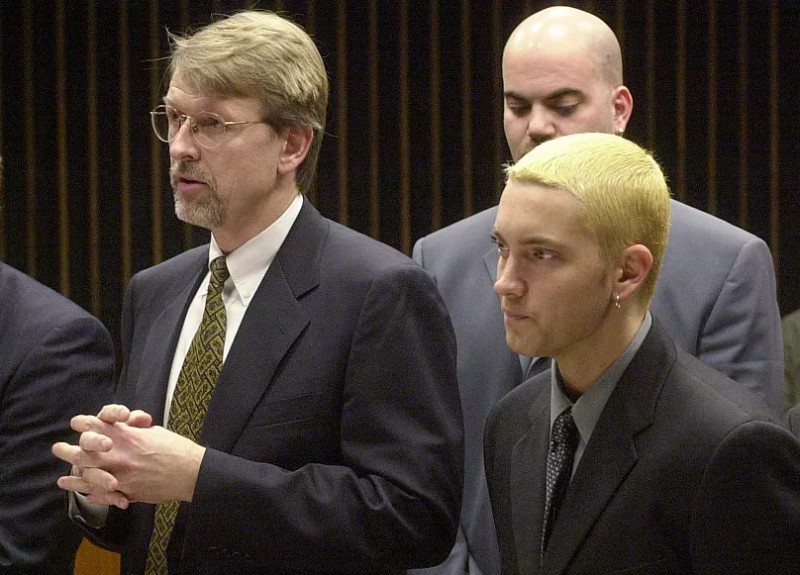Spotify has won a five-year court case against rapper Eminem over whether the music platform had been streaming his music without a licence.
Eminem sued Spotify in 2019 via his publisher Eight Mile Style accusing the streamer for not correctly licensing his work before putting it on the platform.
Spotify won the case even though the court found that Spotify did not have a licence to stream the tracks involved in the suit.
Had Spotify been found guilty of the alleged copyright infringement, it still wouldn’t have been responsible for compensating Eminem directly. It would be Kobalt Music Group, who collect Eminem’s royalties on behalf of Eight Mile Style.
Related- Agriculture report could signal dramatic change in EU farm subsidies
- Why is President Nicolás Maduro moving Christmas forward to 1 October in Venezuela?
So why has Eminem lost this case? The rapper’s company originally filed the suit because they claimed that Spotify had deceptively pretended to have the licences for 243 of his songs.
Eight Mile Style alleged that even though these tracks had been streamed billions of times, Spotify had not “paid Eight Mile for these streams but instead remitted random payments of some sort, which only purport to account for a fraction of those streams”.
This amounted to “willful copyright infringement” the publisher alleged. Notably, at this stage, Eminem himself was unaware of the lawsuit and his music has remained on the platform the entire time.
Spotify responded to the lawsuit in 2020 by claiming it was entirely Kobalt Music Group’s fault and that as the company that administers the rights to Eminem’s music, they had misled Spotify into believing they had the rights to stream the rapper.
In short, Spotify alleged that Kobalt had entered into an agreement with them to licence Eminem’s music without Kobalt actually having those rights from Eight Mile.
From this point on the case started going back and forth between Eight Mile, Spotify, and the newly brought in defendant Kobalt. At one point, everything came to a halt over whether Spotify CEO Daniel Ek would be deposed in the case.
All the parties eventually agreed to a summary judgement to avoid a full jury trial.

On 15 August this year, finally, Judge Aleta A. Trauger issued her judgement. However, the conclusion didn’t go the way Eight Mile hoped. Instead, Trauger found that the company had been purposely trying to extract as much money as possible from Spotify through the copyright infringement suit.
Trauger found that Eight Mile had given Kobalt the authority to collect their royalties while not giving them the authority to licence the music, which went to another company. As Eight Mile never informed Spotify about this, it suggested it was not a “hapless victim” in a copyright infringement case.
Instead, Eight Mile had created a complicated web of ownership and “was aware that the licensing status of the compositions had fallen into confusion and simply allowed its rights to be violated in a way that would be entirely inexplicable other than as a strategic choice to manufacture infringement damages.”
The court still found that Spotify had mishandled Eminem's copyrights, but due to the behaviour of Eight Mile's own actions, they were not entitled to receive any damages.
Disclaimer: The copyright of this article belongs to the original author. Reposting this article is solely for the purpose of information dissemination and does not constitute any investment advice. If there is any infringement, please contact us immediately. We will make corrections or deletions as necessary. Thank you.




